 Your new post is loading...
 Your new post is loading...
The Higher Education Policy Institute (HEPI) has published a new report with original testimony and practical guidance for UK universities on decolonising higher education. The report establishes that the decolonisation of UK universities is vital for the improvement of course curricula, pedagogical practice, staff wellbeing and the student experience. Miseducation: decolonising curricula, culture and pedagogy in UK universities by Mia Liyanage is based on over 20 hours of interviews with leading figures in academia, student activism and higher education policy. The report’s recommendations include: - Ensuring a better understanding of decolonisation and ending its conflation with equality, diversity and inclusion initiatives.
- Prioritising decolonisation in order to expand the curriculum and improve both teaching and course content.
- Increasing Government and university funding for BAME research and BAME-only scholarships.
- Tackling discrimination, hostility and unconscious bias against those working on decolonisation.
- Creating departmental roles to work specifically on issues relating to anti-racism and the decolonising of their department.
- Establishing channels for collaboration on these issues between students and faculty.
Apparently Stanford’s administration was publicly shamed enough to walk back its announcement that they can’t possibly afford to spend money on their university press anymore because its $26 billion endowment isn’t yielding enough cash and something’s gotta give. (Those bribes aren’t helping the balance sheet, either, dammit.) Sharing scholarship is apparently too great a luxury for a university that has the fourth largest endowment among US higher ed institutions. The press has been given a year’s reprieve in hopes we will forget how angry we got when we heard about the plan.Apparently Stanford’s administration was publicly shamed enough to walk back its announcement that they can’t possibly afford to spend money on their university press anymore because its $26 billion endowment isn’t yielding enough cash and something’s gotta give. (Those bribes aren’t helping the balance sheet, either, dammit.) Sharing scholarship is apparently too great a luxury for a university that has the fourth largest endowment among US higher ed institutions. The press has been given a year’s reprieve in hopes we will forget how angry we got when we heard about the plan.
The #OpenBlog19 challenge created by David Hopkins is sparking a series of posts where educators go on to challenge others to write a blog in answer to a given question. Steve Wheeler challenged me to write about 'What's wrong with education'.
My initial thought was that I would have much preferred talikng about what is good with education! There are so many good examples I'd love to share from the many educators I connect with online through Twitter, that have openly shared with others how they engage their students, how they co-learn togeher, how they experiment with innovative and creative approaches using Lego, social media, digital technology, post-its, role play and so much more.
If our measures don’t reflect that which leverages real success for students, then neither will the strategies we implement to do well on those measures. When we change our measures to be more meaningful, our methods will inevitably become more meaningful to our students as well.
BEN NELSON SAYS the primary purpose of a university isn’t to prepare students for a career. It’s to prepare them for life. And he now has $70 million to prove his point.
Here’s a scenario that will set your head spinning: In less time than it takes for a student to go through K-12 schooling, Uber created and eliminated an entire job market. The ride-hailing industry leader started in 2009, created thousands of jobs across the country, and is now introducing self-driving cars that will replace those jobs. In fact, a recent report from the Committee for Economic Development of Australia (CEDA) showed that 40 per cent of jobs are in danger of becoming obsolete. This phenomenon is called the Law of Accelerating Change, and it’s not going to slow down any time soon. The only thing we can do to prepare for such change is to learn how to adapt to, better yet anticipate, it.
The higher education green paper is a radical document, explicitly designed to change universities. But beyond the debates about metrics, funding structures and social mobility is a far more fundamental reframing – of the very concept of higher education.
Mark Phillips draws compelling case studies (for both students and teachers) from a masterful French film about the tensions and possibilities in a multicultural classroom.
A list of things that we don’t really want to talk about in education.
Via Dean J. Fusto
If our students leave school with a belief in their ability and capacity to identify problems and find solution to them, then maybe they are prepared not only for what ever the future may bring but possess the capacity to shape that future.
Via Nik Peachey
|
We increasingly hear employers, prospective students and futurists saying that it is all about the skills, not about the degree. What does that mean for higher ed? Historically, employers made the baccalaureate, and in some cases advanced degrees, the gateway to an interview. If you did not hold the sheepskin, you would not get in the door. But times have changed. Rapidly advancing technologies such as artificial intelligence, big data analytics, robotics and the advent of quantum computing have created an environment in which much of what is learned in college becomes outdated in a few short years. Certainly, the soft skills of creative thinking, critical thinking, communication and leadership do not go out of date and remain in demand by employers. But the hard facts and skills of most of the disciplines are changing as technology ripples through the economy and society.
There are still many disagreements about how to improve the education system so that children graduate with the skills and dispositions they will need to succeed in life. Education reform discussions often center on how to tweak existing mechanisms, but what if the system itself is creating the problems educators and policymakers are trying to solve? That’s the theory favored by author and TED-talk sensation Sir Ken Robinson. “If you design a system to do something, don’t be surprised if it does it,” Robinson said at the annual Big Picture Learning conference called Big Bang. He went on to describe the two pillars of the current system -- conformity and compliance -- which undermine the sincere efforts of educators and parents to equip children with the confidence to enter the world on their own terms.
MOOCs have gone from a buzzword to a punchline, especially among professors who were skeptical of these “massive open online courses” in the first place. But what is their legacy on campuses?
As we transition from a system of globalisation to a new (as yet undefined) system it is likely that all institutions – and especially established and traditional institutions such as universities – will come under attack. This has already become apparent over the past few months in the UK and elsewhere. Some of this criticism is ill-informed (such as the idea that academics have a cushy life with extended summer breaks or universities are running pricing cartels), but other comments are closer to the bone (such as the sustainability of the student fee system or the value for money of higher education). But in responding to these concerns, we have typically resorted to the language of graduate premiums and the economic returns from research.
Reimagining Leonardo da Vinci for the 21st century is how people will be able to cultivate “a new way of knowing” and learning in the next 80 years of rapid and constant technological advances, according to John Seely Brown, former director of the Xerox Palo Alto Research Center and the author of “A New Culture of Learning” and “The Social Life of Information.”
Burning question of the day: Why the continued acceptance of traditional academic subjects?
New research from the University of Derby has revealed that, despite shifting demands in the job market, parents across England are still urging their children to pursue degrees in areas like Science, Maths, English, and History.
The influential psychologist of perception, Jerome S Bruner died on 5th June (2016) at his home in New York City. He was 100.
Bruner’s idea was that it didn’t make sense to fill children with facts, which they would forget as soon as any test was over. The goal in education was to help them recognise relationships between facts.
Born blind and, after having his sight restored, spent the rest of his life trying to understand how the human mind perceives the world, leading to influential advances in education.
Imagine yourself at 18 today. If you are lucky, you will be leaving a secondary education that was able to effectively instill knowledge while inspiring the curiosity and drive for more. Perhaps you have the motivation (whether innate or inspired) to explore more growth through the university system, but perhaps you look at the world around you with awe and wonder. With the latter perspective, you may see local or global issues and challenges as being ripe for critical thinking, even innovation and practice. (I understand that there is a rather large unlucky cohort that exits secondary schooling, with or without a diploma, but certainly without this level of inspiration and intrigue. I would posit, however, that this hypothetical perspective could still apply to them, or you if you would characterize yourself as such and happen to be reading this.) In any case, there is an evolving dynamic of education that would encourage you to embark down the winding, unknown path that this latter approach would lay at your feet.
|



 Your new post is loading...
Your new post is loading...



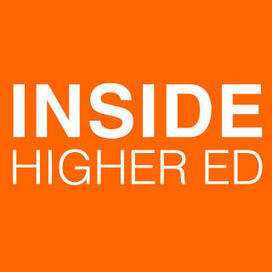

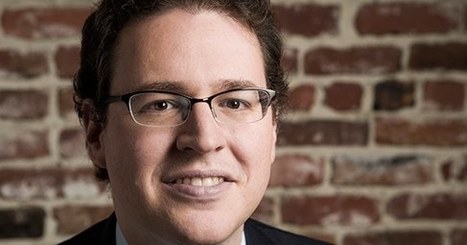

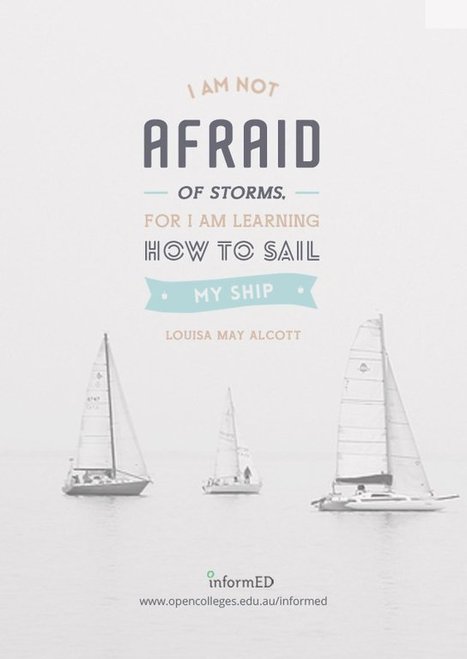






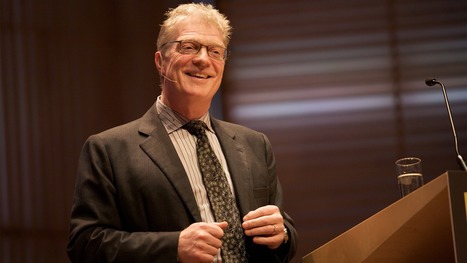

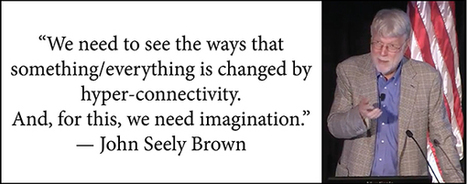
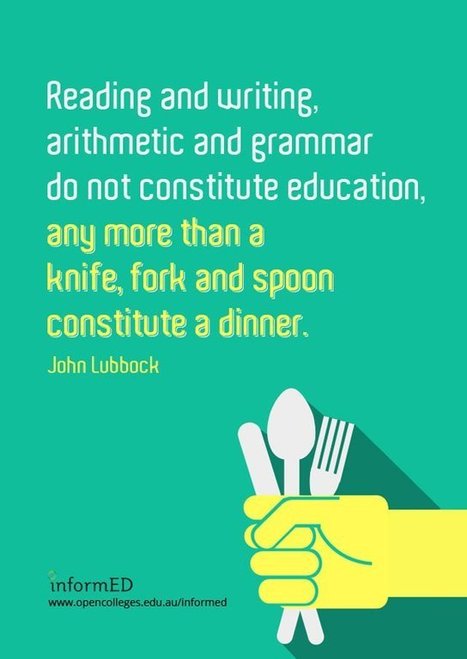






Definitely worth a read regarding the call for the decolonisation of universities.